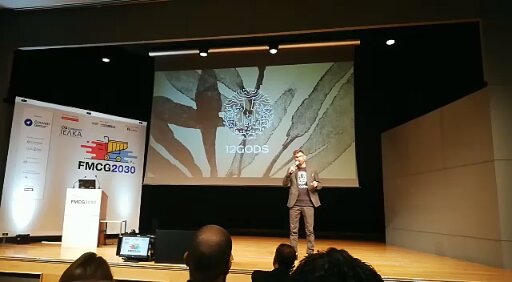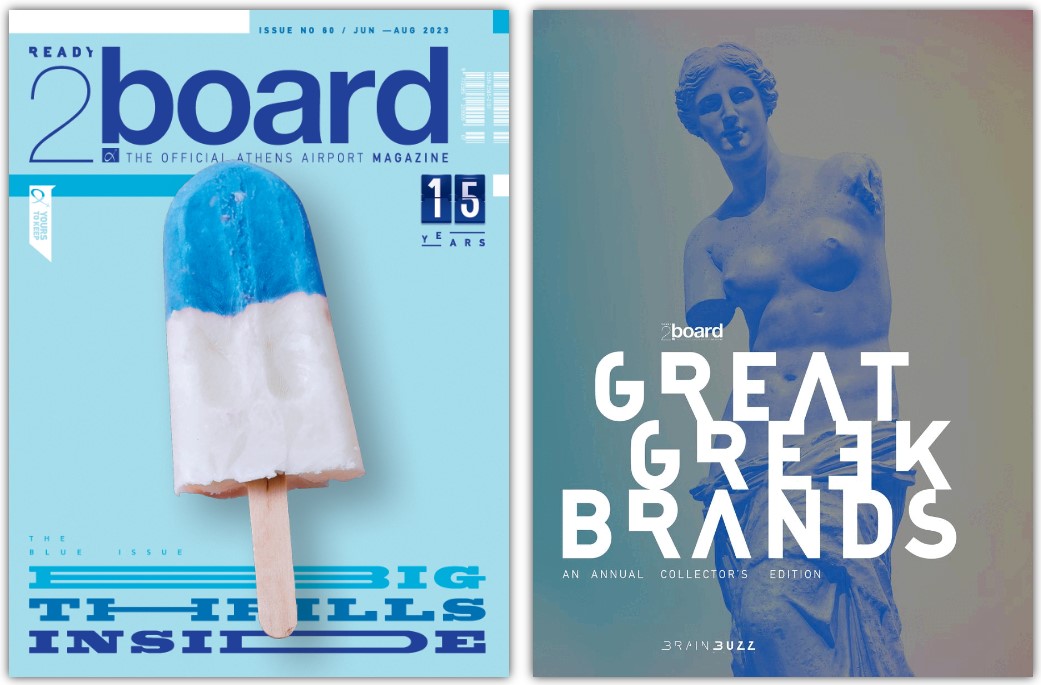
10th Research Institute of Retail Consumer Goods Conference: The FMCG market towards 2030

With the numerous and substantial participation of executives in the field of supermarkets and supply companies (over 250 delegates), the 10th Research Institute of Retail Consumer Goods Conference was held on October 10th. Both the content of the presentations and the questions of the public proved that the promotion of innovation in all fields, the investment in technology and the constant adaptation to the new trends concerning nutrition, the environment, but also the shopping experience as a whole, are key conditions for the progress of companies in the sector and ensuring their presence in the future.
In his introductory speech, Mr. Konstantinos Macheras, President of Research Institute of Retail Consumer Goods, brought to the fore not just the image of food retail in the decade we are going through, but also the future challenges. Among other things, he stressed that the big powers in the industry, such as Walmart, strengthen their digital presence, even by acquiring relevant companies when they do not have the required technology, while new players-strong competitors emerge through the expansion of well-known giants in online retail. (eg Google), but also in the financial sector (financial retail). According to Mr. Macheras, the new technologies and their applications (AI, IoT, 3D printers, cryptocurrency, etc.), as well as the movement of populations (in the next decade it is predicted that over 70% of the population will live in cities and 50% in cities with more than 10,000 inhabitants), are the two most important factors that will determine the future of the industry. At the same time, he stressed that, unlike in the past, where retail was based on the density of the store network, but also on maximizing profitability, today it must aim to offer a unique shopping experience, implementing a customer-centric strategy.
As for 2030, climate change (of the goals we set for the environment we have not achieved in recent years, he said characteristically), the issue of water and food shortages, the aging of the population and its overall growth, are included, he said. Mr. Macheiras, among the issues that must concern the industry from today, in order to move in the right direction. He cited changes in the composition of the population in many countries as an example, which also has a significant impact on dietary issues.
The challenges of the next decade
What are the challenges of the coming decade and how are the companies in the industry responding? Gerardo Mazzeo, Global Innovation Lead, Nestlé SA, presented the strategy that the group has chosen to ensure the pioneer in the presentation of innovative products, especially today when there are many new trends in food (naturally healthy, lactose free, gluten free, plant based , protein, organic products). The company’s response to the need for flexibility and efficiency in innovation production is based on three pillars: internal R&D processes, external and the Open Innovation pillar (under Gerardo). The speaker referred in particular to the Henri platform, the core of the program that connects the most dynamic and effective start-ups with Nestlé resources and experience.
Based on this, the company has already funded projects in various fields, from the one related to the improvement of the contact with the visitor of the site, to the conversion of the packaging into a means that creates a customer experience. Registration for the program is online and the selected projects are funded with $ 50,000. Closing his speech, Gerardo presented the 5 most important market trends. He referred to the new possibilities of data deepening and their utilization, so that it is possible even to directly replenish the products at home or even in the consumer’s refrigerator, but also to adapt the brands to the personal needs of each customer with smaller, targeted product lines. He also spoke about the evolution of “smart” technology, which will not only facilitate the purchase of products as, when and where the consumer wishes, but will also change brand marketing, since the placement of products will be done in multiple channels. He also referred to the transformation of the stores into showrooms and the creation of shopping experiences.
Mr. Filippos Zembilas presented the proposal of 12GODS. He referred to the implementation of his innovative idea of utilizing a capsule system, similar to coffee, for the production of infusions with Greek herbs (4 different blends). The capsule is designed to give the desired effect in a few seconds.



